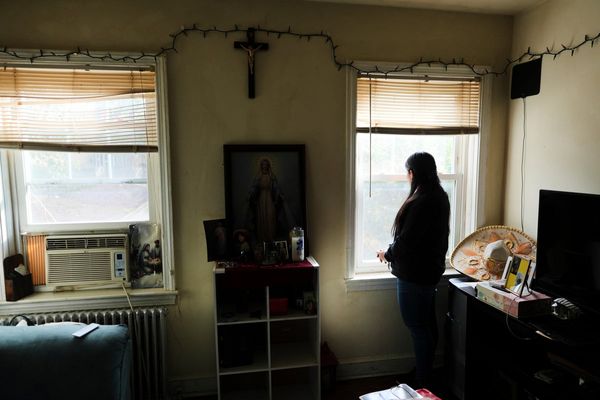
There was a moment during the final question time of the year when Peter Dutton’s frustration got the better of him. “This guy cannot give a straight answer,” the opposition leader interjected, to no one in particular. He was speaking about the prime minister.
Anthony Albanese had floated into the chamber flanked by Sean Turnell, the academic economist recently released by the military junta in Myanmar. Labor MPs were ebullient because they had won an election, tracked through the transition without any major cock-ups, and made it to the end of the parliamentary year with all their initial policy objectives achieved. The opening months of the new Albanese government had been sure-footed. Better still, there had been moments of luck. In politics, persistent luck feels like a blessing from a divine power.
Dutton’s glancing grump across the dispatch box exemplifies the frustration of opposition. It’s hard to land a glove on your opponent when he’s airborne, thundering past you. But Albanese is not the only political actor failing to give straight answers to every question. Dutton has engaged in strategic ambiguity too, most notably on the voice to parliament.
On this question, Dutton has been stalling for months, keeping his options open, arguing he can’t make a decision when there’s a lack of detail about the proposal. Dutton’s former cabinet colleague, Ken Wyatt, effectively called bollocks on the opposition leader’s holding pattern earlier this week, telling the ABC he took a detailed briefing about the voice to parliament to cabinet twice when he was minister for Indigenous Australians. “Just learn to read,” Wyatt suggested.
While Dutton stalled for Australia, David Littleproud dialled things up to eleven. The Nationals leader used the final parliamentary sitting week of the year to confirm the junior Coalition partner would oppose an Indigenous voice to parliament enshrined in the constitution. If this caught you by surprise, let me walk you through the internals.
In National party terms, Littleproud is a progressive. He is also personally close to Albanese, who has sunk a chunk of political capital into getting the voice done. Littleproud and Albanese bonded late in 2017, during a parliamentary delegation to New Delhi, Mumbai and Hyderabad. This was an eccentric little excursion: two future party leaders, a future Speaker of the House of Representatives (Milton Dick), the Liberal Ian Goodenough, and Pauline Hanson, zipping around the cultural sites of India, and having a quiet beer in the evenings. A friendship formed there persists.
There’s something else contextual to understand. There are parliamentarians implacably opposed to progress on constitutional recognition and First Nations representation. That’s a good part of the reason we keep talking about this stuff, walking in circles for a couple of decades, and getting nowhere.
Conservatives in the Nationals party room have harboured suspicion for months that Littleproud might seek to engineer them into a position of supporting the voice, or at least running dead. Conservatives had no intention of allowing that to happen. If Littleproud intended to indulge his comparative progressivism on this particular issue, then they intended to run him down.
Shortly after the election, and with Albanese signalling the voice as an early priority, the Nationals set up an internal subcommittee to resolve their policy stance. One of the members of the subcommittee was Country Liberal party senator and Warlpiri-Celtic woman Jacinta Price – who sits in the Nationals party room. Price contends the voice proposal would divide Australians “along lines of race”.
People familiar with the dynamic say as parliament entered its final fortnight for the year, the Nationals were getting edgy. Some MPs were worried the Liberals might be close to landing a conscience vote position on the voice, which might render a hard no position more politically fraught for the Nationals.
During Monday’s party room meeting, the final landing point was determined with reference to the work of the subcommittee, and by going around the room as the National party did last year when determining whether or not to support a commitment to net zero emissions by 2050. Everyone present had their say.
The position was no. After Littleproud fronted reporters, flanked by colleagues, to deliver the news, angst escalated. Wyatt was clearly furious, and sick of coddling former colleagues with closed minds and hearts. One of the architects of the Uluru statement, Noel Pearson, eviscerated Littleproud as a kindergarten child, handing a compelling word picture to the political cartoonists of Australia. The ensuing WTF thunderclap was startling enough to prompt a handful of Nationals to ease out from the display of unity and differentiate their positions.
Dutton faces a similar coterie of hardcore voice opponents in the Liberal party room, and no less a deity than John Howard recently nudged Dutton in the direction of a no position, with no conscience vote. Howard informed the Australian newspaper the base was hostile. The sample size of Howard’s straw poll, and the margin of error are unknown. Yes, that is irony.
Thus far, Dutton is looking through the free advice and continuing to stall. The strategic ambiguity indicates he’s assessing where to land rather than being herded into a position by hardliners. I understand Wyatt’s frustration with the daily barrage of self-serving nonsense, but on the face of it, stalling is better than preemptive naysaying. Dutton is using his internal authority to buy time.
Some Liberals think the Nationals saying no – and the public stink that followed – makes it politically easier for Dutton to support a conscience vote. That does feel like the most likely option at the moment.
But it is also possible the stalling could end with the Liberals landing where the Nationals have. Some in the government suspect Dutton is demanding spades of detail in part to enable opponents of the voice to split the yes vote and torpedo the reform. This theory is perfectly plausible, given death by weaponised nitpicking is a minor speciality of Australian conservatives if we cast our minds back to the republican referendum.
So this story could end with conservatives continuing to deny the past and rage at the future. But Dutton saying no, or saying maybe but meaning no, is not a cost-free exercise for the opposition leader. Let’s work through the costs in turn.
The first casualty of hard no would be the shadow attorney general, Julian Leeser, who is a public supporter of the voice. Odd Dutton would appoint Leeser to that role straight after the election, knowing his view, then proceed to shaft him, but I guess stranger things have happened. Of course there are policy landing points, I guess you’d call them fudges, that pull up just short of complete humiliation.
Then there are the political risks. The leader of the opposition is well known to voters, and weighted by negatives. The Dutton caricature is deep etched in the national psyche. The Liberals have just been thumped in two elections, and the federal leader needs to broaden his appeal. Dutton pitting himself against the voice sends a signal the Liberals are no longer interested in remaining connected to centre-right progressives comfortable with social change. That’s one hell of a strategic call.
We can extend one step beyond that observation to further illustrate the dangers. Just visualise a scenario where Dutton elects to make himself captain of the no team, but Australians ultimately vote yes on the voice.
I understand the history of Australians referendums suggests they sink unless there is bipartisanship. That truism may indeed hold, particularly if the looming referendum debate lifts the lid on the ugliness that persists in this country around matters of race. But it’s also possible we don’t spiral into a sink hole.
Albanese might not have Dutton to share his progress platform on the voice, but he’s got the premiers. Corporate Australia is on board. I suspect the yes case will be well funded. A bevy of opinion polls suggest a majority of Australians like the voice concept. No political leader wants to be stranded on the wrong side of a referendum result. That’s true also for Albanese in the event the investment of his political capital doesn’t yield the step forward he wants.
But Dutton saying no, and Australians voting yes, is a risk I wouldn’t want to take if I walked in the Liberal leader’s shoes.







